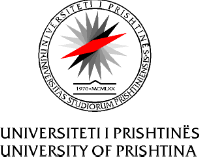Kosovo - Kosova Crisis |
Between non-violence and violence in Kosovo
"As soon as violence occurs, planes full of diplomats start arriving. That is why small violent groups (in Kosovo) are trying to instill the situation with dynamism and thus attract international attention", warned Veton Surroi, editor-in-chief of the independent Albanian press in Kosovo, at the gathering of The Carnegy Foundation for International Peace in Washington, back in December '97. Yesterday, on 2nd March '98, during the brutal police crackdown over the Albanian citizens of Pristina, he headed the procession of non-violent demonstrators, which consisted of several thousand people. Surroi, along with other Albanian intellectuals, interposed his body as a screen between the heavily armed police forces and peaceful protesters. He pleaded with the police not to intervene. Special police forces charged both at him and his colleagues and at the protesters who were sitting on the pavement. But still, they were labeled as "terrorists" by the representatives of the Serbian regime, the Serbian press, and, unfortunately, by the majority of the opposition. Veton Surroi and many others among the Albanian population in Kosovo, who have been trying to run "the hurdle race between ethnic barriers" for years, advocating co-operation, trust, dialogue, creating space in their press for "the ethnic hurdle race runners" on the public scene of Serbia.
While doing this, they never denied their own identity or belonging to a people that has been exposed to the harshest discrimination, violence and institutional apartheid for over a decade. Veton Surroi, as well as a multitude of other Albanian men and women in Kosovo feel how untrue and unjust it is to identify an entire people with small groups who have resorted to armed violence. And many interpretations are being spread about them. Their "accomplishments" make people see only the violence and not the injustice their violent activities might have meant to denounce. It is clear that such violent acts justify an unharnessed state terror, clearing every, even most brutal response, in the minds of the population in Serbia as justified and necessary. So now, following the tragic events which took place over last weekend, (over 20 casualties among Albanian population and 4 dead members of special police units), the idea the pacifists have long been warning about is being established, that "the world does not understand the language of non-violence, but only the language of arms." And they have already started announcing the arrival of planes full of diplomats, scheduling emergency meetings in the forums of the international community_ CNN and other world networks have shown scenes of violence in Kosovo. Where have they been throughout all those years of non-violent activities of the Albanian population in Kosovo? Of course, non-violence is no "news", whereas the suffering and death of the civilian population rank high in the market of morbidity.
Still, war omens have long been present in Kosovo. "Will the external factor, as was the case with Bosnia, adopt the attitude of post-factum wisdom?" wondered Ismet Hajdari , in an exquisite commentary in Nasa Borba in January '98. Or will the victims be turned into statistical figures, while the Balkans experience yet another planetary "humanitarian mission", which will appease consciences and further upgrade the militarisation of this area? Even experts, at various conferences, have speculated about somewhat cynical apocalyptic visions of the situation there. At a seminar in Norway, experts were explaining the Kosovo conflict. "I was horrified to hear them talk about Albanian refugees in Macedonia, repeating that a conflict was inevitable, discussing the number of casualties, refugees and borders. And I heard that two years ago" said an Albanian woman, activist for women's human rights, during our visit to Kosovo ten days ago. Indeed, at the beginning of February '98, Macedonian president Kiro Gligorov spoke of "creating a corridor for over 400,000 Albanian refugees" who would, allegedly, leave Kosovo via Macedonia. As it was the case over all the preceding years of war conflict in the Balkans, peace activities and non-violence practiced by small groups have never attracted the attention of the major world media. At present, scenes are being repeated as if they wanted to strengthen the stereotype about the Balkans as a zone of hatred, violence and intolerance. Yesterday, on 2nd March, after the police had brutally intervened and battered and injured several hundred Albanian citizens, chasing them into doorways and breaking into Koha Ditore, beating up the journalists there, not a word in Albanian could be heard in the main street of Pristina.
Radio B92 announced that "the Serbs appeared on their balconies in order to greet the police forces. They were shouting forcefully and demanding the application of force_" Similarly, In September '91, they were throwing flowers at the tanks which were heading into the destruction of Vukovar. Yesterday, in The Federal Assembly, tribute was paid in a minute of silence only to the policemen who were killed in Kosovo. Afterwards, they competed in outbursts of hatred and fury against the Albanian population in Kosovo; it was a contest in patriotism. They demanded the application of even more brutal forces because "it was the first time in a long period that the police had given an adequate response which must not stop before the task is completed" (SRS). Some emphasized, instigating war, the mythical meaning of Kosovo for the Serbian identity, predicting that "entire Serbia would rise and react"(SPO). Others energetically rejected the very idea that the violation of human rights in Kosovo was an issue of international concern: "Kosovo is exclusively an internal matter of Serbia and Yugoslavia" (JUL), etc.
Afterwards, they adopted the Federal budget, as an act of supreme patriotism. "The war in Kosovo is obvious and it would be disastrous to the country and the people if the budget was not adopted presently" (SPO). Of course, the largest portion of that budget will be spent on the Police and the Army, on maintaining the machinery of oppression. The deputies praised the members of the Ministry of Internal Affairs "for the courage they showed" (SPS and others). The Ministry issued an announcement immediately that "demonstrations of support to terrorism would not be tolerated". As it has always been the case so far, the police will arbitrarily define the "character" of those demonstrations, with the full public support and that coming from opposition parties. The situation is becoming all the more complicated for those who think differently both from the regime and the "opposition parties". As the recently deceased peace activist Ivan Juric said, "Over the past few years, it has been easier to `survive' politically in Serbia by denouncing the ruthlessness of official Belgrade toward Bosnia or Croatia, than by indulging onto a most innocent talk about the Kosovo reality".
During February, the Independent Students' Union of Pristina University (in Albanian) had scheduled new demonstrations for 13th March. Ten days ago, when Bojan and I (Women in Black) and our friend Concha, a peace activist from Spain, were in Kosovo, Albin, Mihana, Muhamed, Milot and others from the Independent Union denounced growing oppression and ever-present forms of low-intensity war against the Albanian people in Kosovo. They announced the broadening of their demands. In addition to their request for returning into the official University premises, they will seek "peace, and opposition to war and violence in Kosovo". Aware of their great responsibility, of the support they have in Kosovo and in the world, and of the hopes that are cherished regarding their activities, they repeatedly stated their adherence to non-violence and principles of Gandhi, whose picture is in a prominent place. They are convinced that "no Army and no Police can crush the will of a people who is resolute to ultimately resist in non-violence". Every time we express our solidarity with the non-violent movement of the Albanian population in Kosovo, we hold that banner in the streets of Belgrade.






